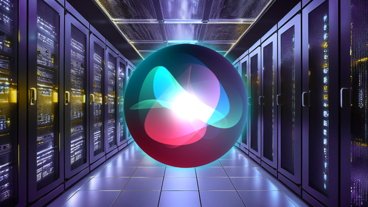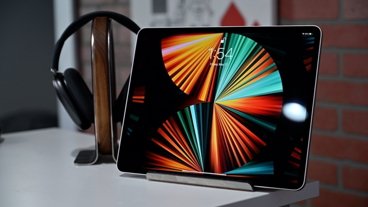The comments came as part of a broad presentation by AT&T Chief Executive Randall Stephenson to investors attending a Morgan Stanley conference in San Francisco on Tuesday, in which he stated his belief that most early adopters of Apple's soon-to-ship iPad device will largely rely on WiFi instead of purchasing a(nother) 3G wireless plan.
It's going to be "interesting to see the customer reaction to the iPad," he said, answering investors' concerns that yet another popular Apple device could further strain its 3G network in congested major metropolitan cities like New York. "We think it's going to be a largely WiFi-driven product."
Stephenson reemphasized his firm's commitment to continue strengthening its 3G network by pouring millions into backend technology in regions where customers have experienced the most problems. He added, however, that another safeguard against over-saturation could see the carrier eventually adopt a new metered pricing model that will charge its bandwidth-guzzling customers more than those who make more modest use of its network.
Update: AT&T spokesman James Carracher contacted AppleInsider Tuesday evening to clarify Stephenson's comments, which were meant to portray where the CEO thinks the wireless industry as a whole is headed.. His exact quote on the issue of tiered pricing was as follows:
"For the industry, we will progressively move towards more of what I call variable pricing. The heavy consumers will pay different than the lower consumers.â€
The remarks could rekindle speculation that tiered iPhone 3G data plans may be on the horizon. Rumors to that end first surfaced in an research report from Kaufman Bros last February but only gained widespread attention when AT&T consumer services chief Ralph de la Vega later seconded the notion during a UBS investment conference in December.
More specifically, he cited statistics as revealing that 40 percent of AT&T's network capacity is used by just 3 percent of smartphone users, adding that it's inevitable that those high-bandwidth users will be charged for what they use. Following public outcry over the matter, AT&T spent the next week attempting to cool rumors of tiered iPhone data pricing, with de la Vega clarify his comments to suggest the carrier would instead begin offering incentives to users to "reduce or modify their usage."
In other revelations Tuesday, Stephenson confirmed that the iPhone will remain a staple of AT&T's business for "quite some time," but stopped short ruling out the possibility that rival carriers could also begin carrying the device stateside. He also said AT&T is in no hurry to push out its 4G network, which is based on technology referred to as LTE or Long Term Evolution.
Although its LTE network will greatly broaden its wireless pipelines and provide customers with much faster download and upload speeds, the carrier reportedly believes its existing 3G network is 'sufficient to handle data traffic for the next few years.'
"We're not in a tremendous hurry on LTE," he said. Instead, the carrier doesn't plan to begin rolling out the next-gen technology until 2011, before taking it mainstream in 2012.
 Sam Oliver
Sam Oliver






-m.jpg)






 Malcolm Owen
Malcolm Owen
 Amber Neely
Amber Neely


 Christine McKee
Christine McKee

 Chip Loder
Chip Loder
 Marko Zivkovic
Marko Zivkovic









47 Comments
As long as MY rate goes down since I'm not a data hog...
Ya, right!
duh, we already saw it coming with the iPad.
All i have to say is, ATT should have seen it coming when it agreed to an "Unlimited" data plan. As long as they don't raise existing rates on iPHone users (i'm a 3G 1st Gen'er), i don't care. But as usual they keep adding to the phone to make it desirable. I'm waiting until this phone dies before i buy another one. So "F-U" ATT...
They're barely crawling towards 3G... and I've got an iPhone that proves it every darned day...
So by the time 4G is the norm, they'll have network coverage issues again. Way to stay behind.
I have no sympathy for those folks that complain about the definition of "Unlimited". If it's strictly using only their phone then perhaps I would have issues with it as well. However, since the top % of users use most of the bandwidth, would it be safe to say that they are probably abusing the resources by tethering their phone and having it become what is essentially a full-time DSL line for their networked LAN's?
Phone bandwidth is a limited resource and must be managed properly. As usual, the 1% ruins it for the other 99%.
I would have a problem if after implementation of this my phone plan does not go down.
It will be interesting to see what happens after if this plan is enacted. Perhaps the network reliability will increase due to the lower saturation on certain towers?